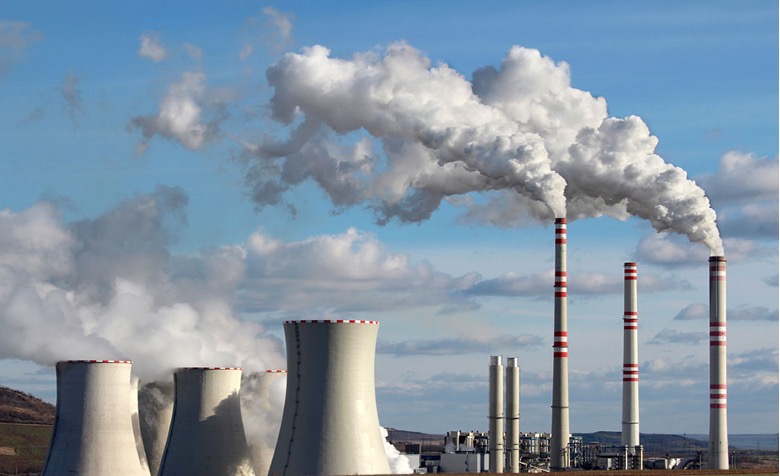Research and policy think tank, the International Perspective for Policy and Governance (IPPG), has urged the Government of Ghana (GoG) to ensure transparency and accountability in the implementation of the country's Emissions Levy Act, 2023 (Act 1112).
According to IPPG, the GoG must prioritize transparent revenue allocation and establish proper verification mechanisms for reported emissions to fully enable the Act to deliver on its environmental and economic objectives.
This, in the view of IPPG, will build public trust and ensure the levy's long-term success in reducing greenhouse gas (GHG) and vehicular emissions in Ghana.
The call from IPPG is detailed in a new research report titled "From Policy to Practice: An In-depth Review of Ghana's Emissions Levy Act". The Emissions Levy Act was passed in February this year as part of Ghana's Environmental Fiscal Reform (EFR) under the Medium-Term Revenue Strategy (MTRS 2024-2027).
The law imposes a levy on CO2e emissions from specific sectors, including construction, manufacturing, mining, energy, and on combustion emissions from gasoline and diesel vehicles. The levy is designed to support Ghana's commitment to achieving GHG emission reductions and avoiding at least 2,900 premature deaths annually through improved air quality.
The research report, authored by Seth Owusu-Mante and Reginald Nii Odoi, Esq., notes that for the Emissions Levy Act to be successful, it is essential that the GoG ensures transparent implementation and calls for the publication of detailed inventories of companies subject to the levy, their emissions levels, and regular reports on the revenues generated and their specific allocations. Without this level of transparency, IPPG warns that public mistrust and a lack of accountability may undermine the levy's effectiveness.
In addition, the report emphasizes the need for clear guidelines and dedicated bodies to measure and verify emissions accurately given that the law provides for self-reporting by companies subject to paying the levy. Without these, IPPG argues, implementing the levy may face significant challenges, which could hinder the Act's impact. The report notes that self-reporting raises concerns about the accuracy of emissions data, with companies potentially underreporting to reduce tax liability or overreporting due to a lack of standardized methods, thereby jeopardizing fair taxation and environmental goals.
The report also addresses the financial barriers to adopting cleaner alternatives in Ghana's transport sector. While the levy on internal combustion engine (ICE) vehicles aims to reduce pollution from diesel and gasoline vehicles and to encourage clean transportation, the high cost of electric vehicles (EVs) and limited financing options in Ghana present significant hurdles. Most Ghanaians can purchase used cars, but even used EVs are still significantly more expensive than used diesel or gasoline cars which limits their accessibility in Ghana. IPPG recommends that the GoG must implement supportive policies, such as subsidies for EV purchases, establishing credit and loan facilities through banks and other financial institutions, and investments in EV infrastructure to overcome these barriers and encourage cleaner transport options.
The report further highlights the absence of a dispute resolution mechanism within the Act and advocates for amending the legislation to include provisions for arbitration to streamline the resolution of grievances which can enhance the Act's effectiveness. The full research report offers valuable insights into how Ghana can leverage the Emissions Levy Act to achieve its environmental and public health goals while promoting sustainable economic development. Successful implementation will reduce Ghana’s GHG emissions, improve air quality, and foster economic resilience to drive the nation toward a sustainable, low-carbon future.
The full report can be downloaded here.
For further information, please visit the IPPG website at www.ippgafrica.org or contact:
Elana Clarke at e.clarke@ippgafrica.org.

Latest Stories
-
I work with a communication firm in America – Charlie Dior
3 minutes -
Presidential Elections: Between Ghana, Nigeria: 7 reasons BVAS may never work in Nigeria — Investigation
16 minutes -
Friedkin Group completes Everton takeover
20 minutes -
CAF Executive Committee approves 2025 Competition Calendar
26 minutes -
FIFA Rankings: Ghana ends 2024 77th in the world, maintains 14th position in Africa
34 minutes -
Kwame Agbodza slams $147m e-gate system as ‘create, loot, and share’ scheme
1 hour -
Drones deployed in Bawku to track down attackers
2 hours -
Today’s front pages: Thursday, December 19, 2024
2 hours -
ORAL: Not all corruption cases fall under the Special Prosecutor – Domelevo
2 hours -
Two dead and 65 cases of malnutrition recorded in Bawku for 2024
3 hours -
NDC’s control of major media houses gave them edge in 2024 polls, says Bawumia
3 hours -
49th SWAG Awards: High jump Queen Rose Yeboah and Grace Mintah lead nominees for topmost award
3 hours -
ORAL: ‘National Cathedral spending is an ‘expensive pit of deceit’ – Ablakwa
3 hours -
Our people didn’t vote – Bawumia explains why the NPP lost
3 hours -
Dr Bawumia had no choice given Mahama’s decisive victory – Malik Basintale
3 hours

